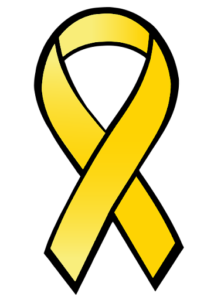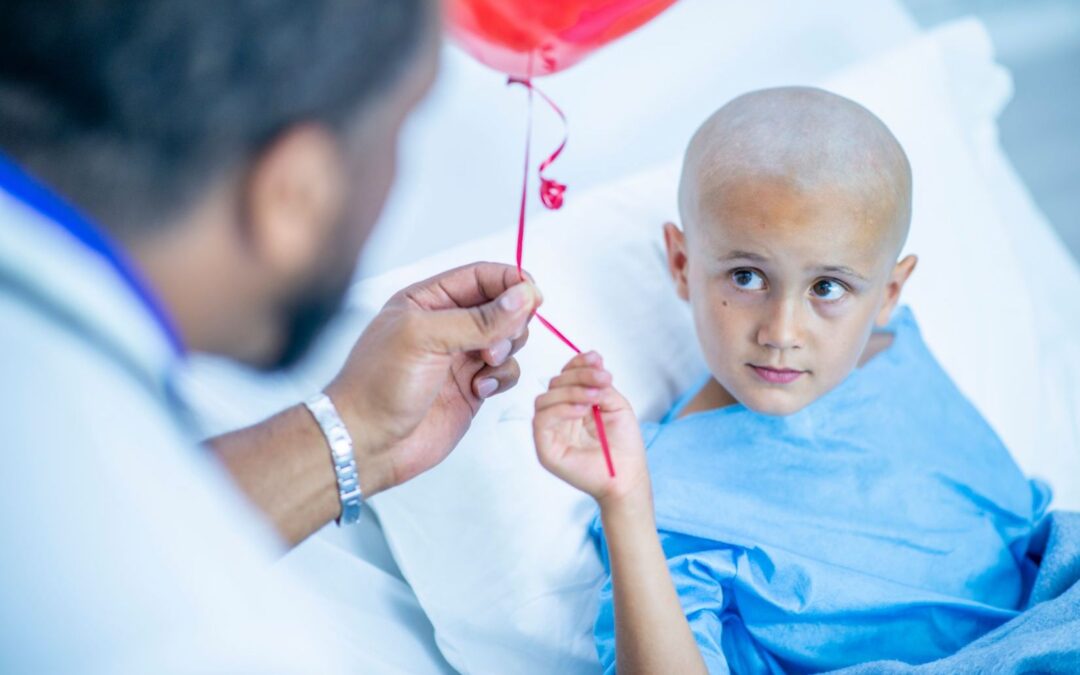Childhood cancer doesn’t seem possible. And yet it happens. Childhood cancer is the leading cause of death by disease for children under 14 in the world. In the United States, it is estimated that 10,470 cases of childhood cancer will be diagnosed in 2022, and 1,050 children will die of their cancer. For those that survive, two-thirds will suffer chronic health issues from the treatment.
Every sick child and every death is a tragedy. Nonprofits and other healthcare institutions in the United States and around the world work diligently to collect funds for the research and treatments that will reduce the suffering of these children. Childhood cancer awareness is the first step. The next step — reaching new donors to fund research and treatment is critical to find cures and save children from suffering.
When is Childhood Cancer Awareness Month?
 September is childhood cancer awareness month, symbolized by a gold ribbon. All month, organizations that are dedicated to childhood cancer awareness, host events to honor the children that are affected by cancer, both the survivors and the deceased, as well as to recognize the caregivers that work tirelessly to improve these children’s lives.
September is childhood cancer awareness month, symbolized by a gold ribbon. All month, organizations that are dedicated to childhood cancer awareness, host events to honor the children that are affected by cancer, both the survivors and the deceased, as well as to recognize the caregivers that work tirelessly to improve these children’s lives.
Many nonprofits, as part of their childhood cancer awareness campaigns, share the stories of the children, so the general public can understand what these children are going through — stories such as the American Childhood Cancer organization’s Gold Ribbon Heros or the National Pediatric Cancer Foundation’s Stories of Hope. The accounts are heart-wrenching, but the courage and perseverance of these children is astounding and inspiring. A good proportion of the funds that are amassed through childhood cancer awareness fundraising goes towards childhood cancer research.
Childhood Cancer Research
While deaths from childhood cancer have decreased, many children experience long term adverse effects from the disease or the treatment. Clearly, safer, more effective treatments are needed. Because childhood cancer is relatively rare — only about 1% of all cancers diagnosed in the United States are childhood cancers, collaboration between childhood cancer research facilities, and with national or international regulatory organizations is essential to be able to make any progress.
An example of this type of collaboration is the alliance between St. Jude’s Children’s Hospital — one of the leading institutions conducting childhood cancer research in the world, and the Pan American Health Organization to strengthen the health system response to childhood cancer.
Childhood cancer is unique and much of the research into adult cancers is not applicable. Unlike many adult cancers, childhood cancer, in the majority of cases, is not connected to lifestyle or environmental risk factors. Children simply haven’t lived long enough for these sorts of factors to wreak havoc. Instead, most childhood cancer seems to be the result of random DNA errors when cells are proliferating as the fetus or child grows. But the causes of childhood cancer are still mostly unknown and more research is needed to fully understand why some children develop cancer.
What are the Types of Childhood Cancer?
Children tend to develop different sorts of cancers than what is seen in adults and the expression of similar cancers is often different as well, essentially making them a different disease. For example, tumors in developing organs are more common in children and because childhood cancers have relatively few genetic alterations, the genetic targeting treatments used in adults won’t work on children. This is another reason why cancer research specific to children is so necessary.
The most common types of childhood cancers are:
- Leukemia
- Brain and spinal cord tumors
- Neuroblastoma
- Wilms tumor
- Lymphoma (including both Hodgkin and non-Hodgkin)
- Rhabdomyosarcoma
- Retinoblastoma
- Bone cancer (including osteosarcoma and Ewing sarcoma)
Treatments include: surgery, chemotherapy, radiation therapy, immunotherapy, and stem cell transplant, but many of these treatments are hard on small, growing bodies.
The Role of Prospects Influential in Supporting Childhood Cancer Awareness
Reaching new people, educating them on why research and new treatments are so critical, and finally motivating them to donate to childhood cancer is the job of nonprofits and other health organizations advocating for children’s health.
Prospects Influential can make your job easier by providing brokered lists of donors who are supportive of children’s health issues. These lists can be filtered by criteria to target those most likely to give generously to your cause.
If you are a charity or non-profit supporting children’s health or any other health issue, and need help reaching people to support the cause and exceed your fundraising goals, give us a call. Our experts can help.

